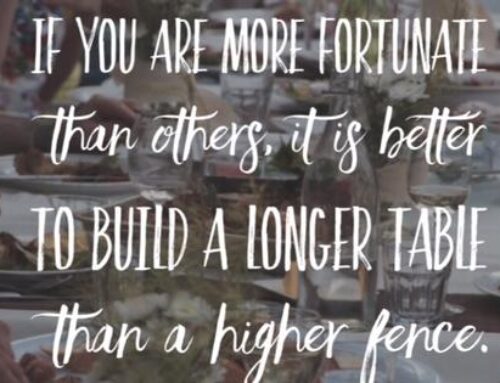How to Change Someone’s Mind About Politics or Religion
April 6, 2020
Categories: Humility
Every single day, people try to change other peoples’ minds about contentious political or religious issues like gay marriage and abortion. They post articles on social media. They get into intense debates. They hone their arguments until they are bulletproof.
It never works. People almost never change their mind about politics or religion because of someone else’s strong opinion or cleverly worded argument. But our lack of success doesn’t stop us from trying.
If Facebook posts and debates don’t work to change people’s minds, what does? Is there any way to change someone’s mind that actually works?
It turns out that there is. But the answer might surprise you.
The Importance of Humility
We often think it takes a strong personality and argument to change someone’s mind. But some of our recent research has shown that humility might be a key factor in helping to change someone’s mind about contentious political or religious issues.
The Study
Here’s what we did: At the beginning of the semester, we recruited college students and had them take a short survey, where they reported their opinions about several contentious issues. For example, in regard to gay marriage, people rated their opinion from 1 = Marriage should only occur between a man and a woman to 7 = Gays and lesbians should have the right to marry.
Later in the semester, we picked out a student who reported a clear position (i.e., 1-2) and paired them with a student who reported the opposite position (i.e., 6-7). Then we brought them into the lab and had them engage a discussion in which they talked about the topic of disagreement while we videotaped them. Afterward, they completed a bunch of questionnaires about the discussion, including rating the humility of the other person.
At the end of the questionnaire, participants filled out the measure about the contentious issues again, and we measured whether participants reported any change in their attitudes relative to when they reported their attitudes the first time.
The Key Finding
We found something interesting: some participants reported changing their attitudes, but this only occurred when both discussion partners were high in humility. If both partners were low in humility, or if only one of the discussion partners was high in humility, no change in attitudes occurred.
Maybe you can relate to this finding in your own life. Have you ever gotten in a debate with someone who was arrogant about their own position? In other words, they were so certain they were right that they weren’t open to your position at all. Because of their lack of humility, you probably weren’t open to what they had to say. You may have even become defensive and more entrenched in your position.
On the other hand, if you engage in a discussion about a difficult topic with someone who is humble, you probably found yourself being more open as well. There was a mutual humility in the discussion that allowed each of you to acknowledge and own the limitations of your positions. You may have even learned something new that changed your perspective on the issue.
Current Political Climate
The current political climate is often characterized by the opposite of humility. Many people entrench themselves in their respective “camps,” surrounding themselves with others who believe the same things as they do. Our news sources and even our social media pages feed us the opinions we like and agree with. As a result, we get more and more sure of our position, and humility is completely lost.
What Might Humility Look Like?
If you actually want to create change in an individual, group, or society at large, you have to start from a place of humility. But what does humility look like?
- Humble people acknowledge and own that they have limitations. They don’t think they have found the “corner on the truth.”
- Humble people recognize that their attitudes and opinions are shaped by their cultural and family upbringing. They have a certain “lens” with which they view the world. They acknowledge that other people may have a different lens… and that’s okay.
- Humble people are constantly learning, growing, and changing. They aren’t static. They expose themselves to information that is different from what they think or believe. They read and listen to a variety of news sources. If they are exposed to new information that runs counter to their old perspective, they are okay with changing their mind.
- Humble people are comfortable with differences. They acknowledge that other people may be different from them, and that’s okay. They don’t get anxious when someone holds a different opinion. They view this as a normal part of living in a society that has different kinds of people.
- Humble people are respectful and curious toward people who believe differently. They ask questions and are open to explore. They value conversations over conversions. They prefer dialogue over debate. They view these kinds of conversations as opportunities to learn and grow.
Bottom line
It may seem counterintuitive, but if you want to change someone’s mind, engage with humility.

Related Thoughts

Subscribe To My Newsletter
Join my mailing list to receive the latest blog posts.
Receive my e-book “The Mental Health Toolkit” for free when you subscribe.





